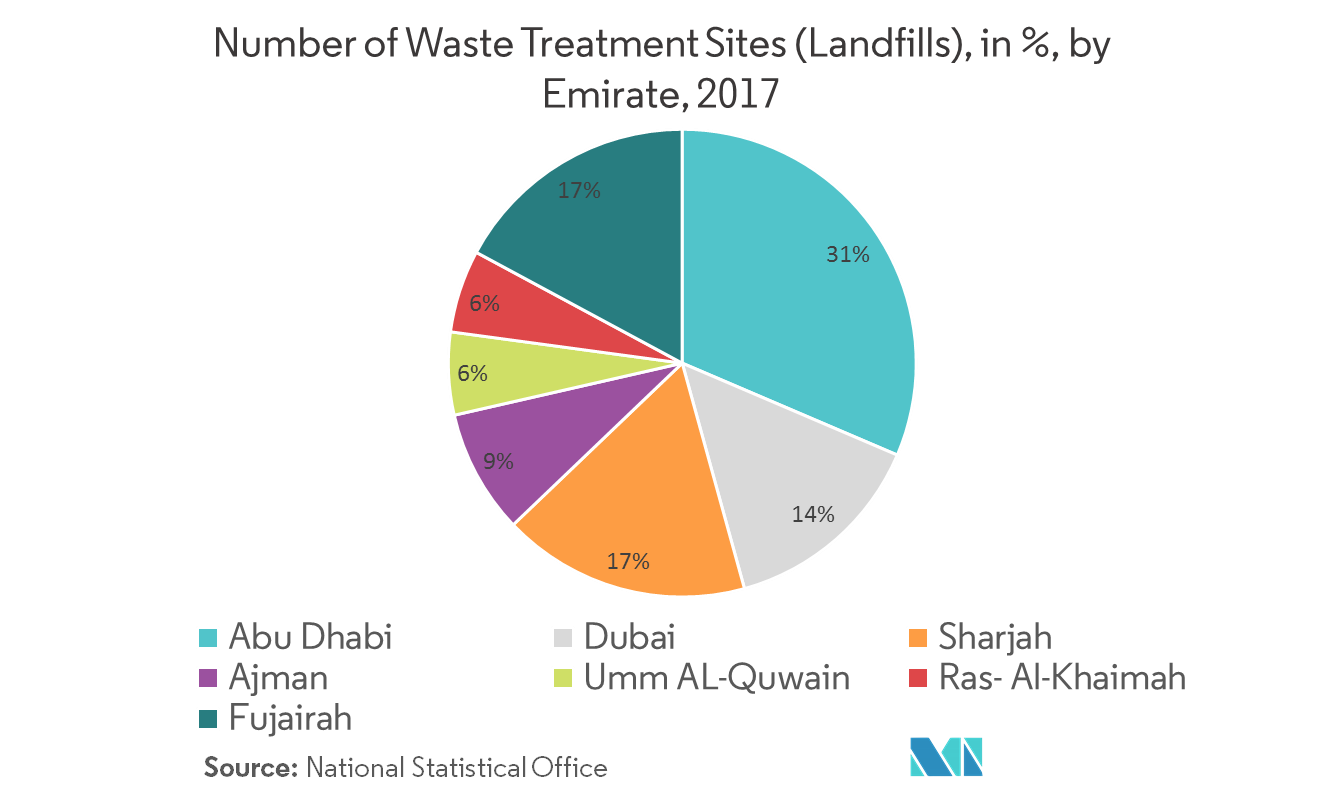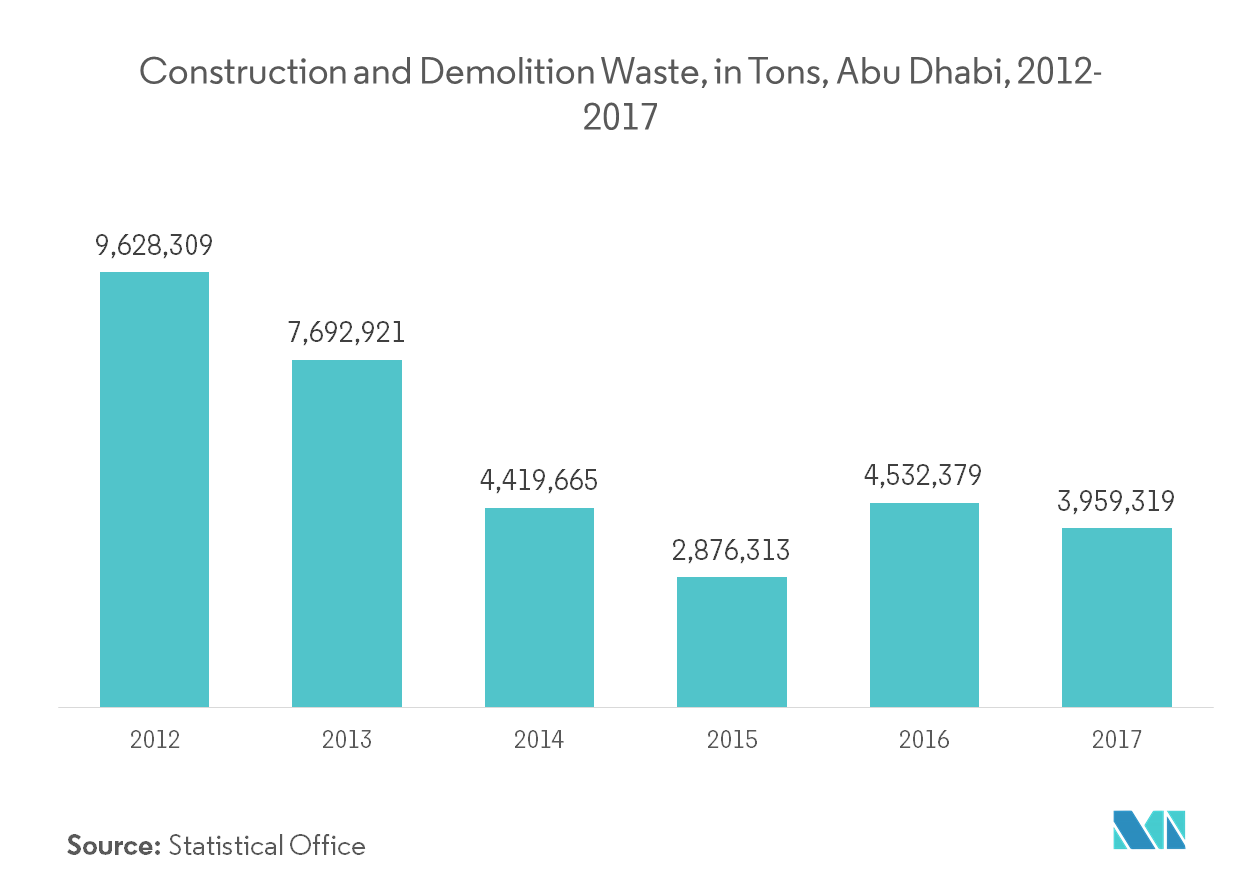Market Trends of UAE Industrial Waste Management Industry
This section covers the major market trends shaping the UAE Industrial Waste Management Market according to our research experts:
Development of Innovative Technologies and Advanced Waste Collection Solutions
One of the key technological innovations launched in the region includes the creation of a new waste database by the Ministry of Climate Change and Environment. The bilingual system compiles and analyzes data regarding the waste generated across the country, and keeps track of the hazardous and non-hazardous waste levels. It creates monthly and yearly reports on the amount of waste generated, treatment methods used, and the percentage of treated waste in each emirate. Such initiatives drive the waste management sector, based on the need for dedicated waste management facilities. Effective waste management techniques are being encouraged across the country, thus improving the sustainability of the country’s environment and economy. Innovation to disrupt the traditional waste management techniques in the entire GCC region was led by Dubai Municipality’s efforts in installing electronic gates and smart weighbridges at all of its waste disposal sites, to make them smart and sustainable. The entire region is looking for an integrated waste management practice that greatly emphasizes the waste-to-value methods, such as recycling, refurbishment, and refining facilities, as well as various other waste-to-energy methods.

Construction and Demolition Waste Segment Holds Major Market Share
Out of the total non-hazardous solid wastes generated in Abu Dhabi, the construction and demolition (C&D) wastes account for 42% of the total weight. This includes building materials, such as insulation, nails, electrical wiring, and rebar, as well as waste originating from site preparation, such as dredging materials, tree stumps, and rubble. The construction and development activities and associated C&D waste production may continue to rise in the region. Hence, if not managed properly, the dumping of C&D may become uncontrolled. This will not only cause a negative environmental impact on soil, water, air, and the surrounding ecosystem, but also result in depletion of finite resources.
The Abu Dhabi Waste Management Center (Tadweer) opened a new facility to recycle construction and demolition waste in Ghayathi in the emirate’s Al Dhafra region. Located near the Ruwais oil fields and the UAE-Saudi Arabia border, the new facility may help ease the pressure on Al Dhafra landfill, which is anticipated to receive construction and demolition waste in the range of 60,000-70,000 metric ton per month, with an average daily inflow of 1,500-2,000 metric ton. The opening of the Ghayathi recycling facility is aligned with the strategic plan to implement a world-class waste management system in Abu Dhabi, and position the United Arab Emirates at the forefront of innovative recycling.


